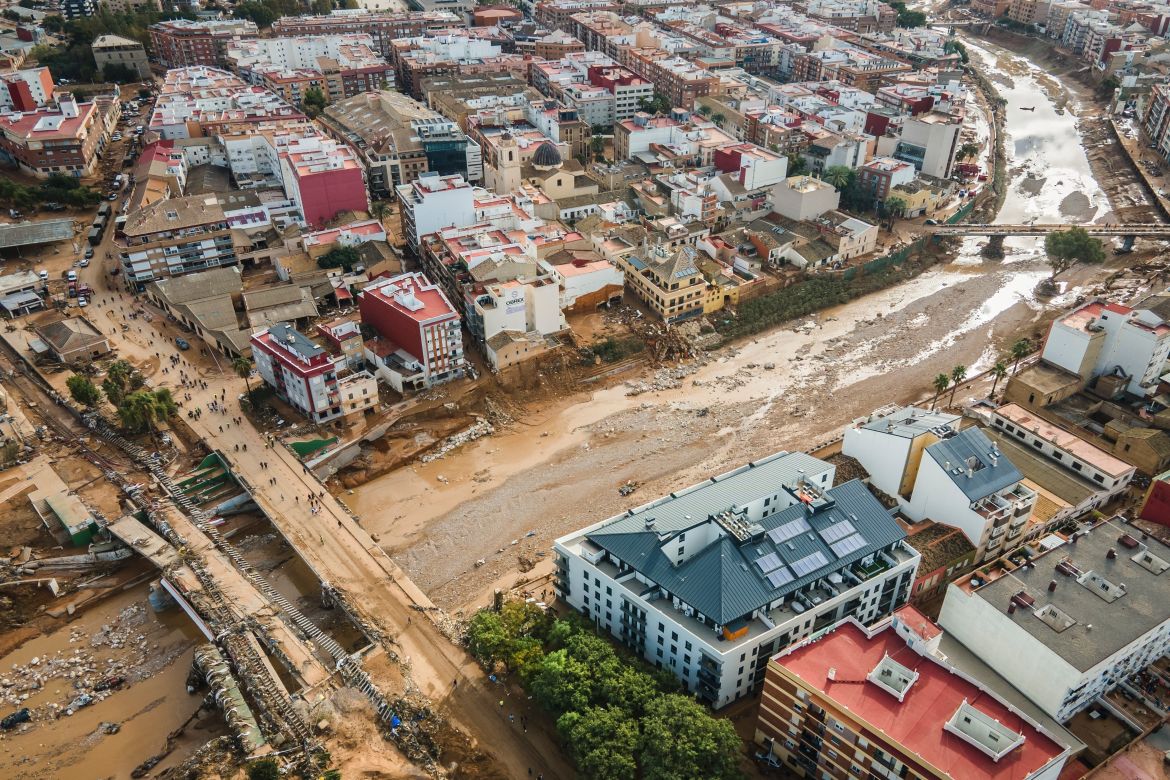In Pictures
Mud covers an area in Paiporta, on the outskirts of Valencia, Spain [Angel Garcia/AP photo]Published On 10 Nov 202410 Nov 2024
Twelve days have passed since catastrophic flash floods carved a muddy scar through eastern Spain, killing more than 200 people and soiling the homes of thousands more.
Apocalyptic scenes speak to the terrifying power of nature unleashed in all its fury.
It was as if a tsunami, rather than rising from the ocean’s depths and crashing into the shore, had been poured down by a vengeful sky god, rampaging through sleepy villages and ordinary neighbourhoods.
The wild newborn river caught thousands unaware, tossed cars around like toys and tore down buildings nearest the normally dry canal banks, which themselves were left widened with ragged edges.
Survivors say it took only 15 minutes for a drainage canal, crucial in the disaster, to go from empty to overflowing. Adjacent homes channelled the rushing water, expanding its shockwave. Regional authorities failed to alert people in time, and in some places, there wasn’t even rain to put people on guard, magnifying the chaos.
In the aftermath, streets look like they have been blasted back to medieval times, covered by layers of mud that obscured any glimpse of pavement or cobblestone.
Everything on the ground floor level was turned into junk in a matter of minutes when the water burst into homes. Furniture, clothes, toys, photos, heirlooms … nothing was spared.
The feeling of abandonment of many residents turned into rage, prompting the pelting of Spain’s King and prime minister with clumps of mud when they visited the devastated area.
Every person’s foot is caked in mud, in the sticky brown filth that, days after, keeps oozing out of homes and ruined stores no matter how much is shovelled and swept away.
The “thup, thup, thup” throbs in the air from the military helicopters flying over the area that has been labelled as “ground zero” of the October 29 floods.
The search continues for the missing. Searchers drive poles into mud banks, hoping to find and recover the bodies of the dead.
But human generosity is also found amid the despair.
While thousands of troops and police reinforcements remove the countless wrecked cars, it’s the people themselves, the residents, neighbours and volunteers who stream in on foot to help.
Strangers aid the needy by diving into the muck and, with each scoop and toss, inch towards a distant renewal.
